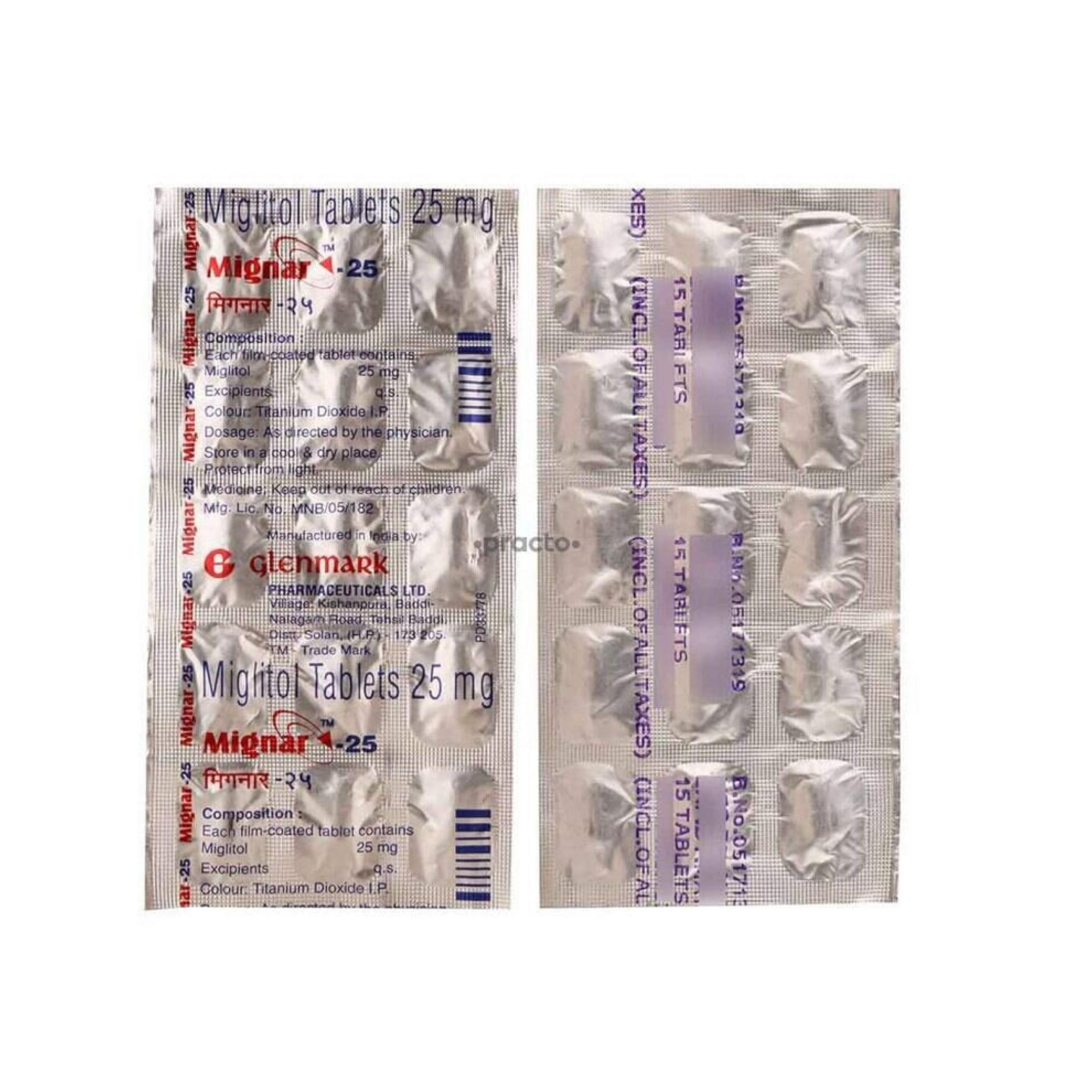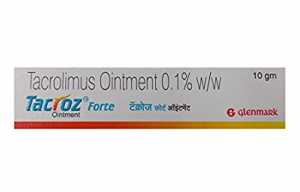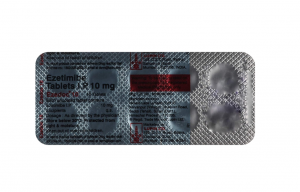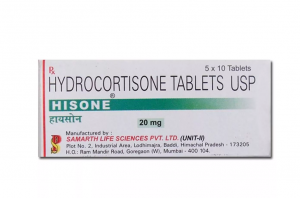Description
Mignar 25 mg is used to manage non-insulin-dependent diabetes mellitus (Type II) in conjunction with dietary therapy; it may be used concurrently with sulfonylurea oral hypoglycemic agents. The active ingredient of the medicine is Miglitol, which belongs to the anti-diabetic class of medication. It is an effective remedy for patients with Type 2 diabetes, especially those whose blood sugar levels are not adequately controlled by diet and exercise alone. Your doctor may prescribe Mignar tablets alone or in combination with other medicines. Type 2 is a chronic metabolic disorder and is a long-lasting condition that affects how our body processes glucose. People with Type II diabetes either do not produce insulin or produce it in a small amount, which cannot help perform its function in the body. Insulin is a hormone that helps glucose into your body cells and provides energy without insulin hormone. Miglitol lowers blood glucose by inhibiting alpha-glucosidase in the gastrointestinal tract, resulting in delayed glucose absorption. During the treatment of type 2 diabetes, the diet should be emphasized as the primary form of treatment. Caloric restriction and weight loss are essential in obsess patients. For best results, proper dietary management may effectively control the blood glucose levels and symptoms of hyperglycemia. The importance of physical activity should also be stressed during and after the treatment. Discontinuation of any anti-diabetic agent should be based on clinical judgement and your doctor evaluations.
Product Description
Mignar should not be given to patients having a disease like diabetic ketoacidosis, gastrointestinal complications such as inflammatory bowel disease, colonic ulceration, or partial intestinal obstruction. Its use is contraindicated in patients with chronic intestinal diseases associated with marked digestion disorders or absorption or with conditions that may worsen due to excessive acid formation in the stomach. If you are hypersensitive to Miglitol, do not take Mignar. Consult your doctor before you begin this treatment.
This drug should not be used by women who are breastfeeding. Mignar can interact with various drugs. Several clinical studies have investigated the possible interaction between Mignar and glyburide. The anti-diabetic agent is excreted in breast milk to a very small degree. Therefore, discuss with your doctor before taking this medicine. This Miglitol formulation should not be administered in pediatric patients.
Side Effects
The most common side effects of Mignar 25 mg are gastrointestinal and directly related to the drug’s mode of action. The most common side effects of Miglitol tablets include nausea, diarrhea, distention, flatulence, nausea, and abdominal pain.
How to Use
There is no fixed dosing regimen for the management of diabetes. The dose of Mignar depends on the patient’s condition. Usually, this anti-diabetic agent should be taken orally three times a day at the start of each meal. It is important to adhere to dietary instructions, a regular exercise program, and regular blood glucose levels to achieve the best results. Miglitol itself does not cause low blood sugar when given to patients in a fasted state. Insulin and sulfonylurea drugs, however, can cause hypoglycemia and cause life-threatening symptoms. Because Mignar treatment is followed with sulfonylurea or insulin will cause a further reduction in blood glucose levels, it may increase the hypoglycemic potential of these agents. If side effects develop the regular use of this anti-diabetic agent, they usually develop during the initial days of therapy. Most of them are mild-to-moderate related gastrointestinal effects. Discontinuation of drugs usually results in rapid resolution of these gastrointestinal symptoms.






1 review for Mignar 25mg Tablet
There are no reviews yet.